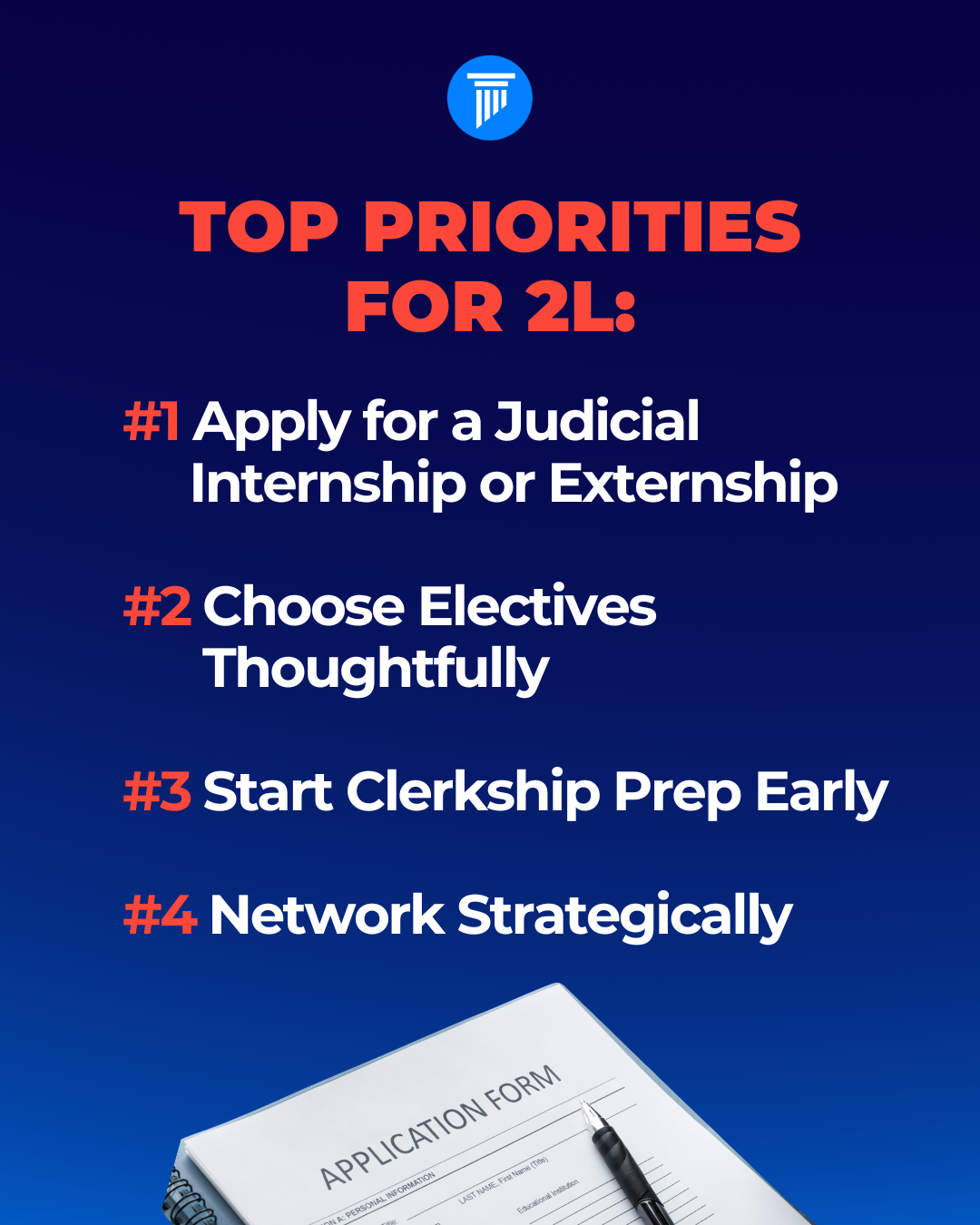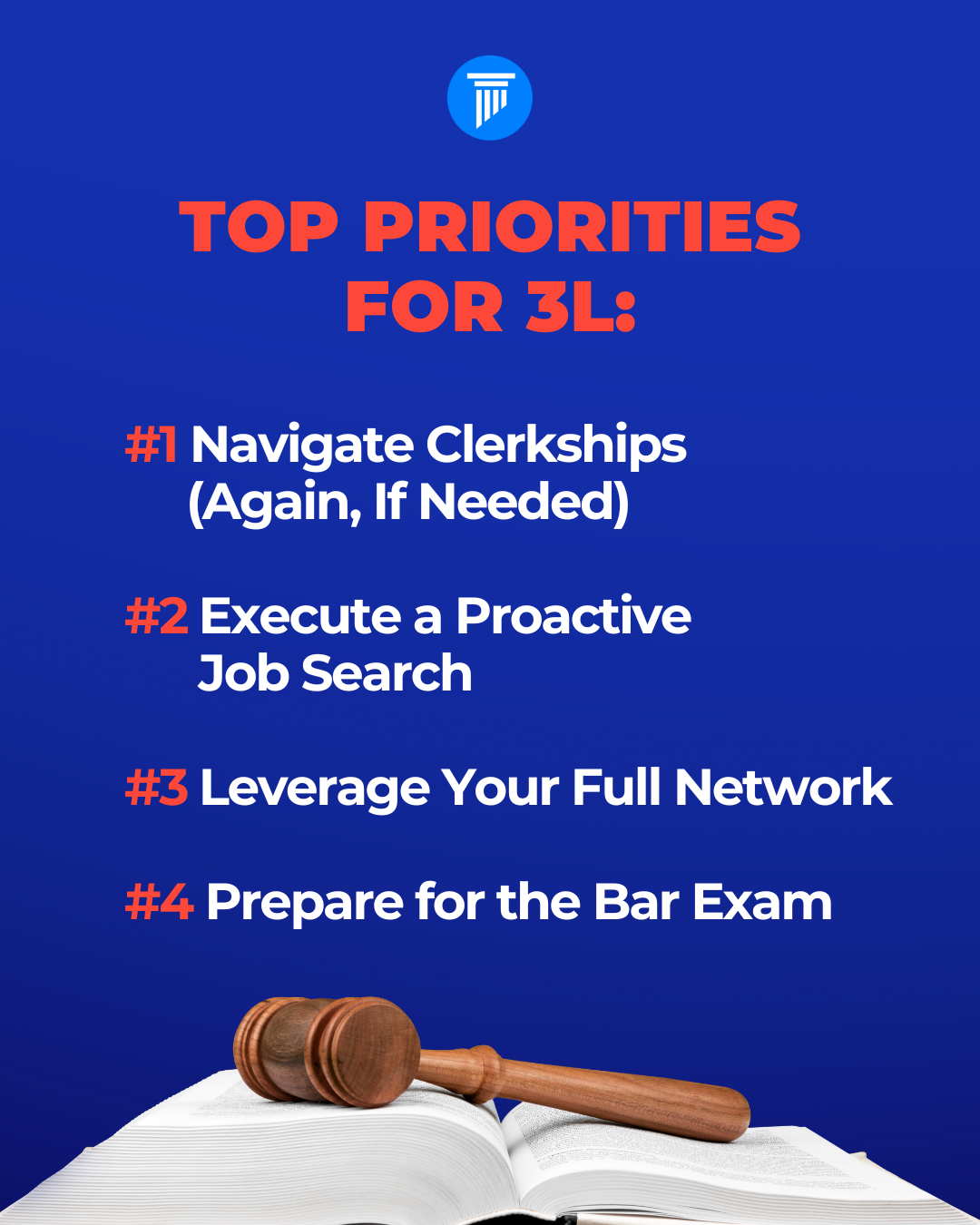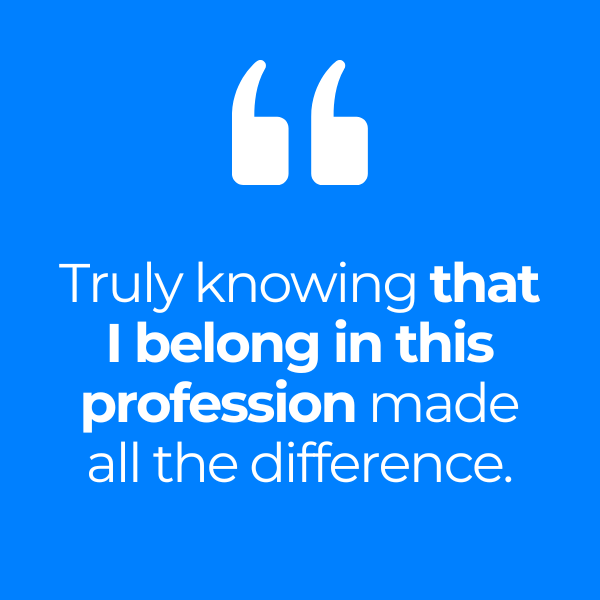
Your Law School Roadmap: What To Do During 1L, 2L, and 3L to Prepare for Appellate Practice
Intentional preparation during law school opens more doors and creates stronger foundations for future appellate opportunities. From developing essential writing skills to building relationships with mentors and judges, the choices you make each year can significantly shape your career trajectory in this specialized field.
At The Appellate Project (TAP), we know that many students (especially those who are first-generation or underrepresented in the legal field) don't have established networks to explain the unwritten rules of legal education. That's why we've created this roadmap: a year-by-year guide to help you make strategic choices that align with your appellate aspirations.
1L Year: Mastering the Fundamentals
1. Focus on Your Grades
"During 1L, I think the most important thing is to focus on your grades," says Jasmine Marchbanks-Owens, a TAP alumna and judicial law clerk at the Mississippi Court of Appeals. "Doing well in your first year will save you a lot of time and extra work when it comes to securing opportunities in appellate law."
2. Work on Your Legal Writing
"Although most 1Ls won't have a lot of room to take electives, invest heavily in your legal-writing classes in whatever form they take," advises Lisa Eskow, Clinical Professor and Co-Director of the Supreme Court Litigation Clinic at the University of Texas School of Law. "They often can be the single most valuable class you'll have access to during your 1L year."
Pro tip: Focus on accurate case synthesis and spend as much time on revising as you do drafting. As Lisa emphasizes: "The draft is the beginning, not the (almost) end of good legal writing. Invest in revision."
3. Join a Journal
If your school accepts 1L journal staffers, apply. You'll get additional exposure to research, writing, and citation skills that are fundamental to appellate work. Journal work equips you with the tools to engage deeply with legal scholarship, master citation rules, and edit your own writing more critically.
4. Connect with Faculty
Look for professors with appellate experience and take advantage of office hours. They are often happy to discuss their professional background, clerkships, and career advice with law students.
Pro tip: Come prepared with specific questions and send a thank-you note after any meeting. "Small acknowledgments and expressions of appreciation go a long way," Lisa adds.
Alumni Advice: Finding Your Own Path
After realizing that grinding for perfect grades was not fulfilling, Jasmine Marchbanks-Owens pivoted to a different strategy. She focused on externing, interning, taking on leadership roles, and building connections with people who could advocate for her. This approach led to record-breaking pro bono hours, serving as COO of a major student-run nonprofit, and creating the first digitized judicial directory for Black law students nationwide.
"Taken individually, these experiences may not seem directly connected to appellate work, but together they helped me discover what I'm passionate about and how to pursue opportunities aligned with those passions. I believe the best way to prepare for a career in appellate law is by identifying what truly interests you—set yourself apart from your peers, and then having the courage to ask for support along the way.”
2L Year: Building Experience and Expertise
1. Apply for a Judicial Internship or Externship
"During your 2L and 3L years, I would recommend getting as much practical experience through internships and clinics," emphasizes Jane Sul, TAP Alumna and Georgetown University Law Center graduate. Seeing legal practice from the judicial perspective is invaluable preparation for appellate work, even if the internship is not at an appellate court.
Pro tip: If your school offers judicial internships or externships, consider this option to gain experience in chambers while earning academic credit
2. Choose Electives Thoughtfully
Choose courses that strengthen appellate skills (Advanced Writing, Administrative Law, Federal Courts, and Statutory Construction), and if targeting specific circuits, consider specialized courses (Patents for Federal Circuit, Admin Law for D.C. Circuit).
Beyond subject-matter knowledge, look for classes that emphasize legal analysis and writing. Seminars often provide opportunities to write substantial research papers that can serve as writing samples for clerkship applications. And consider courses taught by professors who have appellate experience—they often bring practical insights about how legal arguments are crafted and received by courts.
3. Start Clerkship Prep Early
The process can be chaotic, so begin early: identify and polish a writing sample, cultivate strong relationships with your professors for recommendations, and research target courts thoroughly. If you’re not sure where to begin, TAP’s Clerkship Handbook can guide you through the process.
Pro tip: Connect with alumni and 3Ls who've been through the process—many are willing to share their experiences and advice.
4. Network Strategically
Attend bar association events and appellate-focused programs. Have genuine conversations about career paths rather than just collecting business cards. "Talking to attorneys and upperclass law students interested in appellate law, whether it be through formal networking events or more informal gatherings, can be very helpful in gaining practical advice that is relevant and tailored to your specific interests," notes Jane Sul.
3L Year: Launching Your Career
1. Navigate Clerkships (Again, If Needed)
If you didn't secure a clerkship during 2L, don't give up. Many judges prefer candidates with work experience, and you can apply throughout your career. The 3L hiring cycle often moves more slowly, giving you time for thoughtful applications.
Pro tip: Leverage connections from your 2L summer work and consider state court and specialized federal court clerkships, not just prestigious circuit court clerkships.
2. Execute a Proactive Job Search
Don't rely solely on career services. Research firms with appellate practices online, study recent Supreme Court and circuit court cases to identify the lawyers arguing them, and reach out to alumni working in appellate law. Follow up on connections from informational interviews and summer experiences. Some appellate positions aren't posted publicly. Instead, they're filled through referrals and direct outreach.
3. Leverage Your Full Network
By now you should have relationships with professors, mentors, summer supervisors, and fellow students. Don't be afraid to ask for help, information, and introductions. "Trust your instincts and reach out," says Lisa Eskow. "There are no 'silly' questions." Schedule coffee meetings with contacts before you graduate, when you have natural reasons to reconnect, and to seek advice about your next steps.
4. Prepare for the Bar Exam
Passing the bar is non-negotiable, so create a study plan that works for your learning style. “If you can afford it, I highly recommend getting a tutor,” Jasmine suggests. In addition, start bar prep earlier rather than later to avoid the intense cramming that can interfere with job searching and relationship building during your final months of law school.
Traditional bar prep advice focuses on studying and subject matter mastery, but for many bar takers from underrepresented communities, that's not the full picture. "When I didn't pass the first time, it wasn't because I didn't study; it was because I was battling imposter syndrome, the weight of being 'the first' or 'one of few,' and mental health struggles we rarely talk about. I was so anxious on exam day that I second-guessed myself, erasing and changing nearly 20 answers."
What ultimately helped her succeed wasn't just more studying, but learning to believe in herself. "Truly knowing that I belong in this profession made all the difference. Confidence and self-belief aren't just motivational phrases; they are survival tools that allow us to push through and claim the success we've earned."
Alumni Advice: Building Confidence for Success
Despite excelling in law school and being deeply involved in her community, Jasmine Marchbanks-Owens didn't pass the bar exam on her first attempt. “I carried a lot of shame—and still do in some ways—[but] I believe being open about my experience may help others as they prepare for the bar or as they process their results.”
No two appellate careers look exactly alike.
Some lawyers knew from their first constitutional law class that appellate work was their calling. Others discovered it during a judicial externship, through a mentor's suggestion, or even years into practice.
Remember that building an appellate career is a marathon, not a sprint. Take advantage of the opportunities available to you now, seek out mentors who can guide your journey, and don't be afraid to ask questions along the way. The legal profession needs skilled advocates who are passionate about shaping the law, and that includes you.
Thank you to our contributors!
Lisa Eskow
Clinical Professor and Co-Director of the Supreme Court Litigation Clinic at the University of Texas School of Law
Jasmine Marchbanks-Owens
TAP alumna and judicial law clerk at the Mississippi Court of Appeals
Jane Sul
TAP alumna and Georgetown University Law Center graduate








